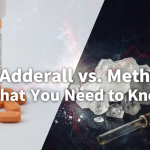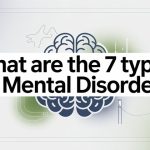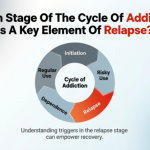Being psychotic may be disorienting, intimidating and alienating, not only to the sufferer, but also to their family members. The disorders may greatly impair the way an individual perceives the reality, which in most cases would cause hallucinations, delusions and mentations that lack order. Solutions Healthcare is an organisation that offers evidence-based treatment and client-centered care to people with psychotic disorders. Be it brief psychotic disorder, acute psychotic, and major depressive disorder with psychotic features, we will use every chance to make you stable and live a full life.

What is a Psychotic Disorder?
A mental health disorder is a psychotic disorder, in which a person loses reality. Symptoms may include:
- Hallucinations: hearing, seeing or feeling things that do not exist.
- Delusions: false beliefs or irrational beliefs.
- Incoherent thinking or speech.
- Aboriginal or incongruous conduct.
These symptoms have the potential to interfere with normal functioning, relationships and well-being. Psychotic disorders may exist as a separate disorder or as a comorbid disorder with another mental health disorder, including depression or bipolar disorder. Symptoms may also get more severe and difficult to treat without professional intervention, which is why it is important to treat the disease as early as possible.
Types of Psychotic Disorders
Psychotic disorders differ in their manifestation and the degree:
Schizophrenia
A long-term and acute mental disorder that is characterized by hallucinations, delusions, and cognitive imbalances.
Schizoaffective Disorder
One of the psychotic symptom and mood disorders such as depression or mania.It may be difficult to diagnose because of similar symptoms.
Brief Psychotic Disorder
A transient disorder with unexpected psychotic symptoms which usually occur due to stress or trauma. Timely therapy results in prevention.
Delusional Disorder
Delusional beliefs that persist in a minimum of a month and do not occur with the other significant psychotic characteristics.
Psychotic Depression
Extreme depression with hallucinations or delusions usually based on guilt, poverty or illness.
Substance-Induced Psychotic Disorder
The psychosis due to substance use or withdrawal requires particular care.
Symptoms and Causes
Common Symptoms:
- Hallucinations (hearing/seeing things that are not there)
- Delusions (false beliefs)
- Distorted speech and/or thinking.
- Impromptu or unforeseen conduct.
- Social withdrawal/isolation.
- Problems at work or problems in the relationship.
- Depression or anxiety (in comorbid disorders)
Causes and Risk Factors:
The causes of psychotic disorders can be both genetic and biological and environmental:
- Family history of psychosis
- Brain chemistry / structural abnormalities.
- Trauma or abuse
- Severe stress
- Substance use
- Subsidiary medical or neurological conditions.
It is necessary to know the causes and develop a successful treatment scheme.
Psychotic Disorder Treatment at Solutions Healthcare
Our psychotic treatment is both detailed and tailored and conscientious in Solutions Healthcare. Our research team offers evidence-based treatment aimed at enabling people to be in charge and live purposeful lives.
Assessment and Diagnosis
The initial step of treatment is the accurate diagnosis.A thorough psychological examination of the symptomatology, history, and comorbid conditions is conducted by our clinical staff so that we create a specific treatment plan.
Medication Management
Antipsychotic drugs are important in minimizing hallucinations, delusions, and disordered thinking. Our team observes the progress and changes medications accordingly to make sure that the medication is beneficial and minimizes the side effects.
Psychotherapy
Recovery is imperative to long-term therapy. Our offerings include:
- Cognitive Behavioral Therapy (CBT): Has advantages such as making people conscious and modifying distorted thought patterns and behaviors.
- Individual Therapy: This is whereby one can get a safe place to exercise feelings and experiences.
- Group Therapy: The intervention encourages peer group support and experience.
- Family Therapy: Prepares members of the family with the means of assisting the loved one.
Holistic and Supportive Services
We are also concerned about general health and apply the supportive therapies that include mindfulness, yoga, art therapy, and nutrition advice to improve mental and physical conditions.
Inpatient and Outpatient Options
We offer a variety of treatment choices so that we could adjust to different people:
- Inpatient programs: Acute care of persons in crisis, and treatment of acute psychotic disorders.
- New user outpatient programs: Guidance to patients returning to normal life and still receiving treatment.
Relapse Prevention and Aftercare
Recovery is a long term process that needs planning and encouragement. Our work involves assisting clients in developing relapse prevention plans, accessing services in the community, and providing care after treatment in order to reduce chances of relapse and sustaining progress.

Why Choose Solutions Healthcare?
One should choose the right treatment facility. At Solutions Healthcare, we provide high-level clinical care with a supportive caring atmosphere. We have a relaxed and domestic setting and an experienced staff that will guarantee a client gets individualized care.
- Person-centered care.
- Well trained mental health personnel.
- Dual diagnosis treatment
- Involvement of family and facilitation.
- Considerate, supportive and comfortable atmosphere.
Start Healing Today
The problem with psychotic disorders is not easy but they can be cured. Solutions Healthcare is your friend to assist you in the first step to stability, health, and hope.
Call (386) 866-3600 now to find out more on our treatment programs of psychotic disorders and re-gain control of the mind.
FAQs
Q. What is an example of a psychotic disorder?
Schizophrenia is one of the most famous types of psychotic diseases.
Q. What are the 5 key symptoms of a psychotic disorder?
Hallucinations, delusions, disordered thought, abnormal behavior and withdrawal.
Q. What are the 10 psychotic disorders?
Among the common ones are schizophrenia, schizophrenic disorder, brief psychotic, delusional, psychotic depression, substance psychosis induced, schizophreniform, psychotic bipolar, postpartum, and shared psychotic disorders.
Q. Can you live a normal life with psychosis?
Yes. Through appropriate treatment and care, a great number of people are able to cope with symptoms and live productive and full lives.




























